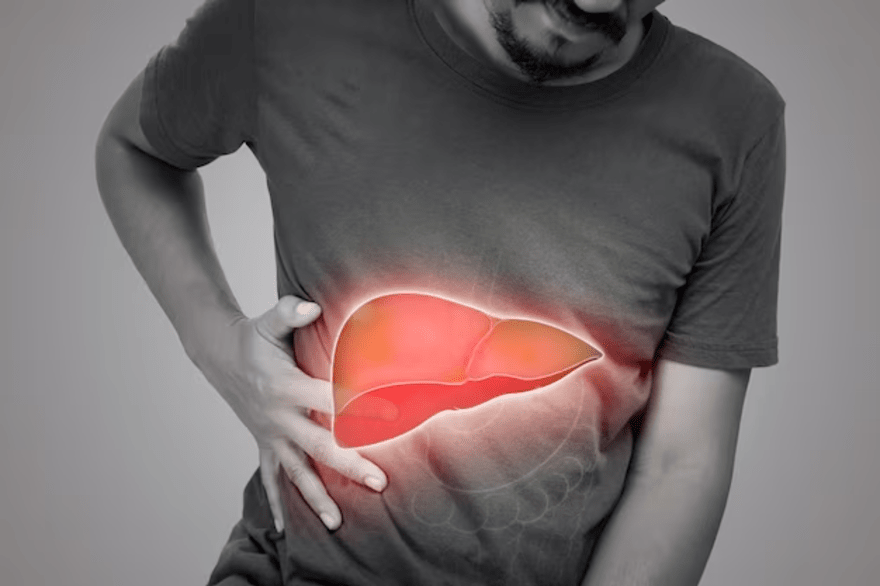Preventive Healthcare
Understanding Liver Failure: Causes, Symptoms & Treatments

Table of Contents
- What is Liver Failure?
- How Common is Liver Disease Overall?
- What Causes Liver Failure?
- What are the symptoms of liver failure?
- How is Liver Failure Diagnosed?
- How is Liver Failure Treated?
- What Complications are Associated With Liver Failure?
- Can Liver Failure be Prevented?
- Who is At The Greatest Risk for Liver Failure?
- What is the Outlook for Patients After Treatment for Liver Failure?
- Conclusion
What is Liver Failure?
Liver failure is a critical medical condition where the liver loses its ability to function effectively. This liver failure can be acute, occurring suddenly due to factors like infection or drug overdose, or chronic, developing gradually over time due to conditions like cirrhosis. Prompt medical attention is essential, as untreated liver failure can be life-threatening. The liver failure life expectancy is somewhere between two years to 12 years. If it is an early-stage Cirrhosis, you can live longer by making lifestyle and diet changes. At times, even liver transplants may be necessary in severe cases to restore proper liver function.
How Common is Liver Disease Overall?
Liver disease is a global health concern affecting a significant number of people, making it a notable health issue. Approximately 30 million people suffer from some form of liver disease. In 2017, more than 8,000 people received liver transplants, and more than 17,000 people are on the waiting list to get a liver transplant.
What Causes Liver Failure?
Liver failure can occur as a result of various underlying conditions. There are two main types of liver failure, i.e., acute liver failure and chronic liver failure. Acute liver failure causes include:
- Viral infections, such as Hepatitis B.
- Overuse of certain drugs or toxins, like Acetaminophen (Tylenol®),
- Use of medications, including certain antibiotics, anti-seizure medications, man-made hormones and antifungal drugs and herbs such as green tea extract.
- Metabolic (biologic) or vascular (vessels that carry fluids, such as arteries) disorders, such as Wilson disease and Autoimmune Hepatitis.
- Acute fatty liver during pregnancy is a rare condition where excess fat gathers on your liver and damages it.
- Septic shock is an overwhelming infection in your body that can damage your liver.
The most common chronic liver failure causes include:
- Hepatitis B
- Hepatitis C, which leads to Cirrhosis if it is long-term.
- Long-term alcohol consumption, which leads to Cirrhosis.
- Hemochromatosis
What are the symptoms of liver failure?
The liver failure symptoms can vary depending on the type and stage of the condition. The liver failure symptoms may resemble symptoms of other medical conditions, making it hard to diagnose in the early liver failure stages.
Acute liver failure symptoms may include:
- Jaundice: Yellowing of the skin and eyes
- Fatigue and weakness
- Abdominal pain and discomfort, especially in the upper right side
- Nausea and vomiting
- Loss of appetite
- Dark urine
- Pale-colored stools
- Confusion and changes in mental function.
- Bleeding tendencies, such as easy bruising or nosebleeds.
As the condition advances, the liver failure symptoms may appear more severe. Chronic Liver Failure symptoms (End-Stage Liver Disease) are:
- Fatigue and weakness
- Ascites (fluid buildup in the abdominal cavity)
- Edema (swelling in the legs and ankles)
- Itchy skin (pruritus)
- Spider-like blood vessels on the skin (spider angiomas)
- Weight loss
- Portal hypertension, which can lead to bleeding varices in the esophagus and stomach.
- Kidney dysfunction
- Dark, tarry stools due to gastrointestinal bleeding
- Osteoporosis and bone fractures
How is Liver Failure Diagnosed?
Your doctor diagnoses liver failure on the basis of your liver damage symptoms, medical history and blood test results such as blood tests, urine tests, and abdominal imaging.
How is Liver Failure Treated?
The liver failure treatment depends on the underlying cause and the severity of the condition.
For chronic liver failure, treatment includes:
- Lifestyle changes, including diet
- Avoid alcohol or medications that can harm your liver
- Eating less red meat, cheese and eggs
- Weight loss and metabolic risk factors management, including high blood pressure and diabetes
- Cutting down on salt in your diet or not adding salt at all
For acute (sudden) liver failure, treatment includes:
- Intravenous (IV) fluids to maintain blood pressure as advised by the doctor
- Medications to help flush toxins (poisons) out as prescribed by the doctor
- Blood glucose (sugar) monitoring. If your blood sugar drops, your doctor may provide you with glucose.
If there are complications such as ascites (abdominal fluid buildup), variceal bleeding (bleeding from enlarged blood vessels in the esophagus or stomach), or coagulopathy (bleeding disorders), specific interventions or procedures may be required to address these issues. In case of heavy bleeding, you may receive a blood transfusion.
The liver failure treatment plan will be determined by a medical team based on your condition, the cause of liver failure, and various factors. It is crucial for individuals with liver failure to receive timely medical care and follow the healthcare recommendations to manage the condition effectively. Early intervention can sometimes prevent the progression of end-stage liver disease and the need for a liver transplant.
What Complications are Associated With Liver Failure?
Liver failure, whether acute or chronic, can lead to a range of complications that can be life-threatening. Some of the complications associated with liver failure include infection, electrolyte deficiencies and bleeding. Moreover, both acute and chronic liver failure may eventually result in death if not treated.
Can Liver Failure be Prevented?
Liver failure can be prevented, or its risk can be reduced through a combination of healthy lifestyle choices and proper medical care, including:
- Being vaccinated for hepatitis B is a preventive measure.
- Limit alcohol consumption
- Maintain a healthy weight and an active lifestyle
- Follow the prescription when using liver failure medications
- Visit your healthcare provider for regular check-ups and screenings
- Limit exposure to toxins that can harm the liver
Who is At The Greatest Risk for Liver Failure?
The greatest risk for liver failure is often associated with individuals who have chronic liver diseases, such as Cirrhosis, Viral Hepatitis (especially Hepatitis B and C), Non-Alcoholic Fatty Liver Disease (NAFLD), and alcoholic liver disease. Some other risk factors include:
- Misuse alcohol or engage in prolonged substance abuse
- Certain genetic factors, like hereditary liver conditions, can also increase the susceptibility to liver failure
- Poor diet and lifestyle choices, obesity, and those exposed to toxins or medications that harm the liver may face an elevated risk
What is the Outlook for Patients After Treatment for Liver Failure?
Many patients receiving the liver failure treatment recover from it. If transplantation is required, most of the patients get back to their normal life and daily activities within six months. However, patients who have received the transplantation would require lifelong liver failure self care and medical care along with the medications that help to prevent the body from rejecting the new organ.
Conclusion
Whether it's acute or chronic, the consequences of liver failure can be life-threatening, emphasizing the importance of early detection and intervention. With timely liver failure treatment, one can easily recover, and for those requiring transplantation, there is hope for a return to a normal life with ongoing medical care. Liver health is a crucial aspect of overall well-being, and awareness and proactive measures can make a significant difference. So, take charge of your health today and schedule your liver test with Metropolis and get accurate results today!









































